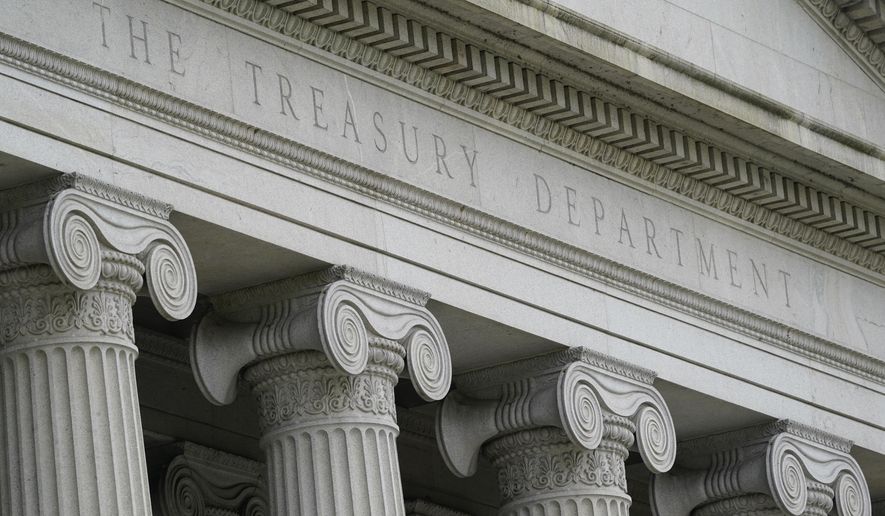The Secret Service has “hundreds” of investigations into international criminal syndicates suspected of stealing taxpayers’ money from pandemic relief programs, the agency’s top coronavirus official told Congress on Tuesday.
But he and other federal investigators also said they can’t yet say how much of the trillions of dollars paid out in relief was fraudulent.
“We are nowhere near a full understanding of the fraud landscape,” said Hannibal “Mike” Ware, the inspector general at the Small Business Administration, which doled out more than $1.3 trillion in loans.
Estimates by outside analysts run deep into the hundreds of billions of dollars, with perhaps $250 billion alone stolen from the $900 billion in pandemic unemployment benefits. Haywood Talcove, CEO of government business at LexisNexis Risk Solutions, figures a majority of that flowed to overseas actors.
Little of it has been clawed back.
Roy Dotson, the Secret Service’s pandemic fraud recovery coordinator, said they’ve seized $1.26 billion and only a “slight amount” was from international fraudsters.
“Anything we can recover we will recover. Obviously, when it leaves the United States and goes international it makes our job tougher,” he said.
The officials described a government wholly unprepared for the massive spending Congress pumped into the economy in the early months of the pandemic. The money helped keep the economy afloat, but also lined the pockets of fraudsters — including some syndicates connected with America’s adversaries such as Russia and Iran.
Michael E. Horowitz, inspector general at the Justice Department and head of the Pandemic Response Advisory Committee, said a key anti-fraud analytics tool built for the Obama-era economic stimulus spending was allowed to lapse in 2015. When the COVID-19 pandemic struck, they had to rebuild that tool from scratch, at a cost of $40 million.
The tool allows comparisons of massive sets of data, such as addresses, telephone numbers and Social Security numbers associated with relief requests.
“We’ve identified well over 1 million suspiciously used Social Security numbers for multiple applications,” Mr. Horowitz said.
One Social Security number has shown up in pandemic unemployment applications in 29 states. And a single telephone number was used for 1,400 Paycheck Protection Program loans from the Small Business Administration.
“We shouldn’t have 29 states giving benefits to the same Social Security number,” Mr. Horowitz said.
He said tools to stop bogus payments on the front end are important, but now investigators need more money to go after fraud. He said investments in the inspector general offices can deliver a 15-fold return on investment in fraudulent claims blocked or recovered.
He also warned that Congress needs to change the law and extend a statute of limitations for prosecuting fraud from small business loan programs. Current law only allows a five-year window, and investigators are already into the third year for many applications.
Legislation has already cleared the House, and Mr. Horowitz urged senators to follow through.
The officials were testifying to the Select Subcommittee on the Coronavirus Crisis.
Lawmakers in both parties said the need for speed in getting money out the door trumped controls.
“The greatest country on earth can do better than this in distributing a huge amount of money,” said Rep. Jamie Raskin, Maryland Democrat.
For more information, visit The Washington Times COVID-19 resource page.
• Stephen Dinan can be reached at sdinan@washingtontimes.com.




Please read our comment policy before commenting.